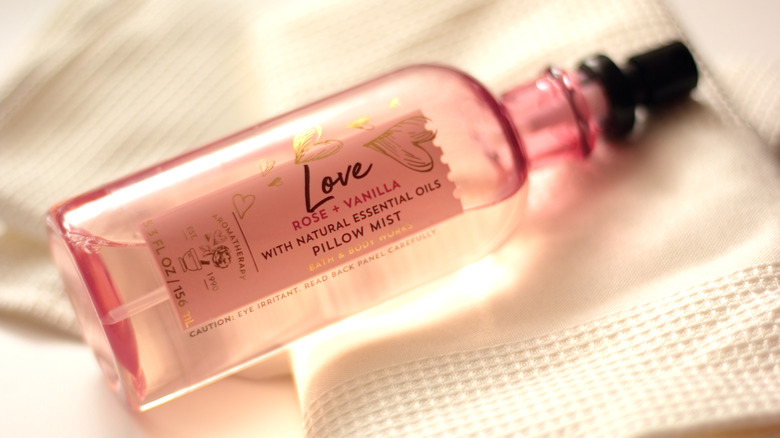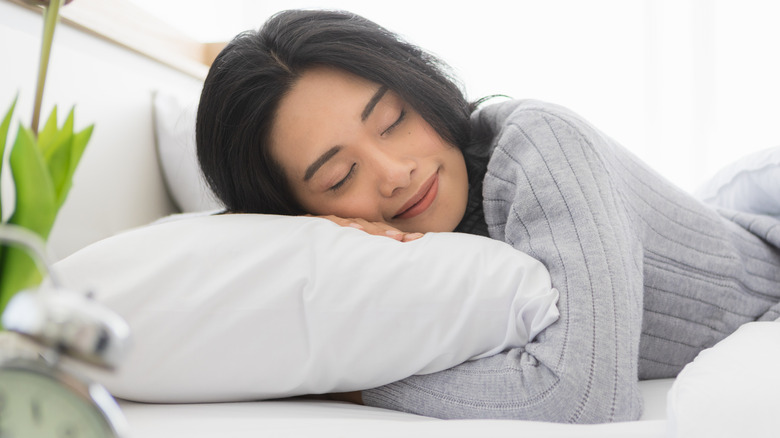How A Pillow Mist Could Be The Secret To A Good Night's Rest
The idea that scents can be used to help promote wellness is not new. Research shows that the inhalation of plant aromas has been used throughout history to help fight stress and improve the quality of sleep (via American Chemical Society). Since then, we've figured out how to bottle these benefits with scented body washes, sprays, essential oils, and more. If you're a fan of aromatherapy yet still find yourself tossing and turning throughout the night, consider adding a new scented product to your collection.
Enter pillow mist — a concoction of essential oils thought to induce feelings of relaxation (via Healthline). One quick spray across your bedding and you may find yourself off to dreamland before you know it. While pillow mist has yet to be the subject of scientific study as it directly relates to sleep, aromatherapy certainly has. "Aromatherapy can activate the parasympathetic nervous system and slow our brain waves from highly active 'beta' and 'alpha' waves to 'theta' — the latter being the same pattern we exhibit in meditation," explains sleep expert Olivia Arezzolo to Verywell Mind.
If you're interested in giving pillow mist a try, these are some of the essential oil ingredients that are thought to promote sleep.
The ingredients you want to see in your pillow mist
In first place is lavender. "Among [pillow spray] components, lavender is perhaps the ingredient that has been studied the most and shown to be associated with favorable sleep outcomes," sleep researcher Dr. Rebecca Robbins told Healthline. In fact, in a 2008 study, researchers from the University of Hertfordshire set out to create what they called, "the world's most relaxing room," which included having visitors lay on lavender-scented pillows in order to reduce stress.
But why stick to pillow sprays containing just one essential oil? Bergamot can be a great complement to lavender and other oils when it comes to improving sleep quality (via Healthline). In a 2019 study published in the Journal of Alternative and Complementary Medicine, researchers soaked cotton balls with lavender, ylang ylang, and bergamot and placed them next to cardiac patients while they slept over the course of five nights. Those who received the aromatherapy treatment experienced significant improvements in sleep, including fewer bathroom trips and feeling less cold during the night.
However, when it comes to the scent of your pillow, any smell that evokes feelings of happiness may be enough to do the trick. According to research from the American Academy of Otolaryngology, pleasant smells, such as roses, elicited more positive dream recollection from sleeping participants than unpleasant smells.


